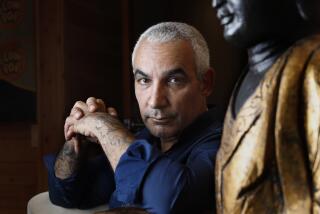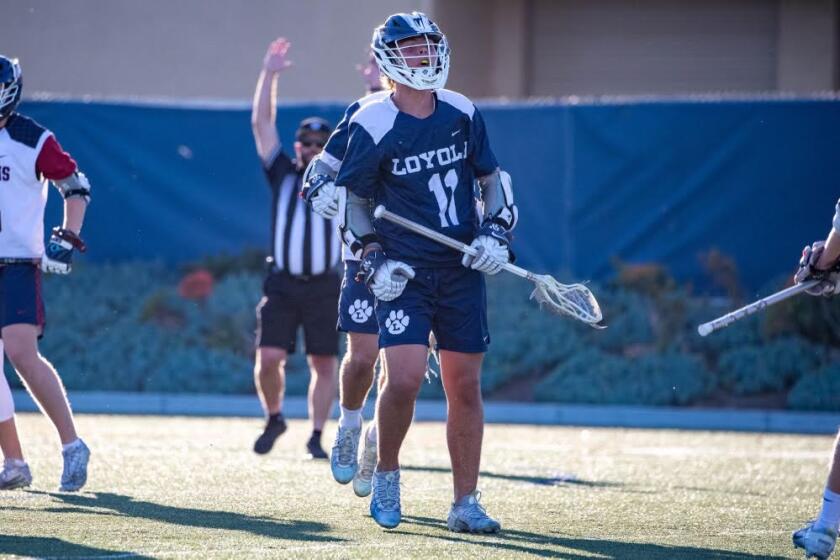Court Overturns Klein’s Judgment Over Al Davis
- Share via
SAN DIEGO — In a stunning reversal that represents just one more victory for the Los Angeles Raiders, a state appellate court Wednesday overturned a $2-million judgment awarded to former San Diego Chargers owner Eugene Klein in his malicious-prosecution lawsuit against Raiders owner Al Davis.
Klein, who sold the Chargers in 1984, accused Davis and his club of maliciously singling him out as a defendant in the Raiders’ landmark antitrust case against the National Football League. Klein suffered a heart attack in 1981 while on the witness stand during the antitrust case, in which the Raiders triumphed and earned the right to move from Oakland to the Los Angeles Coliseum for the 1982 season.
In his own suit, Klein claimed that Davis lacked probable cause for singling him out as a so-called “ringleader” in the antitrust action, and he blamed his heart attack on the strain caused by the federal suit.
A San Diego Superior Court jury agreed in late 1986 and subsequently awarded Klein $10 million in compensatory and punitive damages--an amount later reduced to $2 million by Superior Court Judge Gilbert Harelson.
Within His Legal Rights
But the 4th District Court of Appeal ruled Wednesday that Davis was not guilty of malicious prosecution because he was within his legal rights to include Klein as an antitrust defendant. The panel reversed the decision, declaring Davis the winner and giving Klein nothing.
Klein could not be reached for comment. His San Francisco attorney was magnanimous in defeat.
“We’re disappointed, but that’s why we have appellate courts,” attorney Joseph W. Cotchett said. “I congratulate Al Davis . . . on a fine victory.”
Some Raiders’ officials, meanwhile, reveled in their latest victory over nemesis Klein.
“That’s basically what he deserves,” said Al LoCasale, Davis’ executive assistant. “It’s another great victory. It’s a total vindication for Al Davis and the Raiders.”
Although Davis’ antitrust fight with the NFL was a much bigger legal battle, LoCasale said that Klein’s malicious-prosecution lawsuit was more troubling because the surprising verdict and huge jury awards came with four games left in the 1986 football season. The Raiders proceeded to lose the games and missed the playoffs with a mediocre 8-8 record, he said.
“The case itself was a distraction, probably as big a distraction as we’ve ever had on the football field,” LoCasale said. “Here this decision was reached while we were sitting on the football field at practice, and somebody walks out and said the jury has awarded Gene Klein $10 million.”
Joseph L. Alioto, Davis’ San Francisco attorney, added: “A hometown decision has been corrected by higher justice. Klein could never beat Davis on the football field, so he tried to beat him in court and lost there as well.”
Legitimate Legal Reason
Davis, who was not available for comment, was more restrained when informed of the appellate decision, LoCasale said.
“It’s not something that gets an excited emotional response from Al. That happens when we win football games and championships. That’s what we’re in business to do,” he said.
The appellate court ruled against Klein because it said a Superior Court jury, in reaching its verdict, should never have been asked to consider whether Davis had a legitimate legal reason for naming the former Chargers owner as an individual defendant in the antitrust suit. That question should have been decided by the Superior Court trial judge, the three-justice appellate panel said.
But, even if the question had been properly put to the judge, Davis had good reasons for naming Klein in the NFL suit, the appellate court said.
Relying on a recent California Supreme Court decision, the appellate judges said any “reasonable attorney” would have believed that activities undertaken by Klein, as the general partner for the Chargers, constituted grounds for naming him in the lawsuit, the justices said.
“We conclude the federal cross-claim pursued by the Raiders against Klein individually . . . was legally tenable and thus supported by probable cause,” the appellate court wrote.
And, since Davis had a legitimate reason for bringing the suit, he cannot be found guilty of malicious prosecution, the appellate court held.
Along with Klein, the Raiders named Los Angeles Rams owner Georgia Frontiere and NFL Commissioner Pete Rozelle as individual defendants in their antitrust case.
More to Read
Go beyond the scoreboard
Get the latest on L.A.'s teams in the daily Sports Report newsletter.
You may occasionally receive promotional content from the Los Angeles Times.










